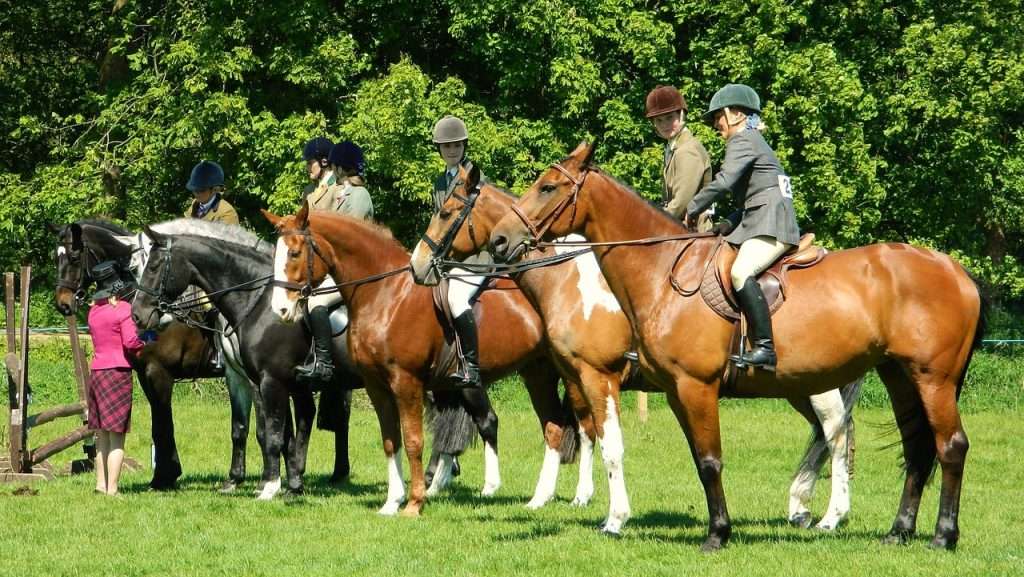Choosing the Right Horse for Your Discipline: A Guide for Equestrians
Horses are magnificent creatures that have been a part of human history for thousands of years. Whether for transportation, work, or sport, horses have played a significant role in our lives. If you’re an equestrian looking to buy a horse, it’s essential to choose the right horse for your discipline.
Here’s a guide to help you choose the right horse for your discipline.
- Know Your Discipline
The first step in choosing the right horse is knowing your discipline. Are you a dressage rider, a jumper, a trail rider, or a barrel racer? Different disciplines require different types of horses, and each horse has its strengths and weaknesses.
If you’re a dressage rider, you’ll want a horse with a long, elegant neck and a strong, supple back. Jumpers need horses that are athletic and fearless, with strong hindquarters and a willingness to take on challenging obstacles. Trail riders need horses that are calm, steady, and able to handle uneven terrain. Barrel racers need horses that are quick, agile, and have a natural inclination to turn tightly.
- Consider Your Level of Experience
Another crucial factor to consider is your level of experience. If you’re a beginner, you’ll want a horse that is well-trained and has a gentle disposition. More experienced riders can handle horses with more challenging temperaments.
If you’re a beginner, it’s also a good idea to consider buying an older horse. Older horses are generally calmer and have more experience. They’re also less likely to have any behavior issues.
- Evaluate the Horse’s Conformation
The horse’s conformation is the physical structure of the horse. It includes the horse’s body shape, size, and proportions. The conformation can affect the horse’s movement, soundness, and ability to perform.
When evaluating a horse’s conformation, look for a horse with a strong, well-muscled body, a straight back, and good legs. A horse with a long, sloping shoulder and a deep chest will have a more extended stride and be better suited for dressage or jumping. A horse with short, powerful legs and a compact body will be better suited for barrel racing or cutting.
- Check the Horse’s Health and Soundness
Before buying a horse, it’s crucial to have a veterinarian perform a pre-purchase exam. The exam will assess the horse’s overall health and soundness. The vet will check the horse’s eyes, ears, teeth, heart, lungs, and limbs. They’ll also evaluate the horse’s movement and check for any lameness or other health issues.
If the horse has any health or soundness issues, it’s important to factor in the cost of treatment and ongoing care. It’s also important to consider if the horse’s condition will affect their ability to perform in your chosen discipline.
- Consider Your Budget
Horses can be expensive to buy and maintain. When considering your budget, remember that the purchase price is just the beginning. You’ll need to factor in the cost of feed, bedding, farrier care, veterinary care, and any training or lessons.
It’s also essential to consider the cost of the horse’s ongoing care. Horses require regular exercise, grooming, and attention. If you’re unable to provide this care yourself, you’ll need to factor in the cost of boarding the horse at a facility that can provide the care they need.
- Take Your Time
Choosing the right horse is a significant decision that shouldn’t be rushed. Take your time to evaluate different horses, and don’t feel pressured to make a decision quickly. It’s important to find a horse that you feel comfortable with and that is suited for your chosen discipline.
Conclusion
In conclusion, choosing the right horse for your discipline is a critical decision that should not be taken lightly. It’s essential to consider your discipline, level of experience, the horse’s conformation, health, and soundness, your budget, and to take your time.
If you’re unsure about which horse is right for you, seek advice from a knowledgeable trainer or instructor. They can help you evaluate potential horses and provide guidance on selecting the right horse for your discipline.
Remember, a horse is a significant investment of both time and money. By taking the time to choose the right horse, you’ll be able to develop a strong bond with your horse and achieve success in your chosen discipline.




